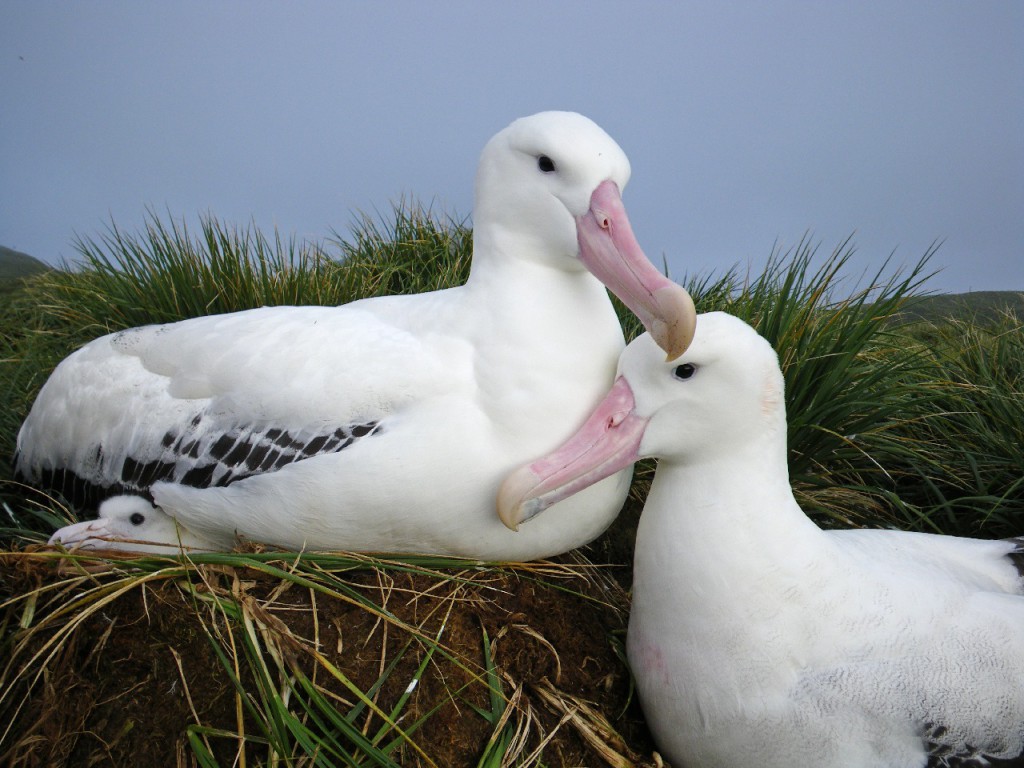Does age matter? Maybe not if you’re a wandering albatross
A new study of the wandering albatrosses breeding on the sub-antarctic island of Bird Island (off South Georgia) reveals that age doesn’t matter when foraging. The research, published in the journal PLOS ONE last month, shows that even when the birds reach old age, any reduction in muscle function and visual acuity didn’t appear to affect their foraging behaviour.
The wandering albatross (Diomedea exulans), can live to over 50 years old. However, their breeding success tails off from their late teens onwards, and scientists thought this could be due to a gradual decline in foraging ability. This is not the case for the bird famous from the poem, The Rime of the Ancient Mariner.
The researchers, from British Antarctic Survey and University of Edinburgh, tracked birds, both young and old, using GPS and tiny loggers on their legs which recorded the number and duration of landings to capture prey. What they found was the majority of the older birds flew just as far and landed as often as their younger counterparts and were not impaired by their ‘old age’.

Dr Richard Phillips, Seabird Ecologist at British Antarctic Survey says, “This work is really interesting because we could not detect a correlation between the poorer breeding success of older birds and their foraging ability. This contrasts with research on wandering albatross populations in the Indian Ocean, where there appeared to be a link, and where old males were more likely than young males to travel south to Antarctic waters to feed. What we need to find out next is what makes life on South Georgia so different.”
The study took place at British Antarctic Survey’s Bird Island Research Station.
